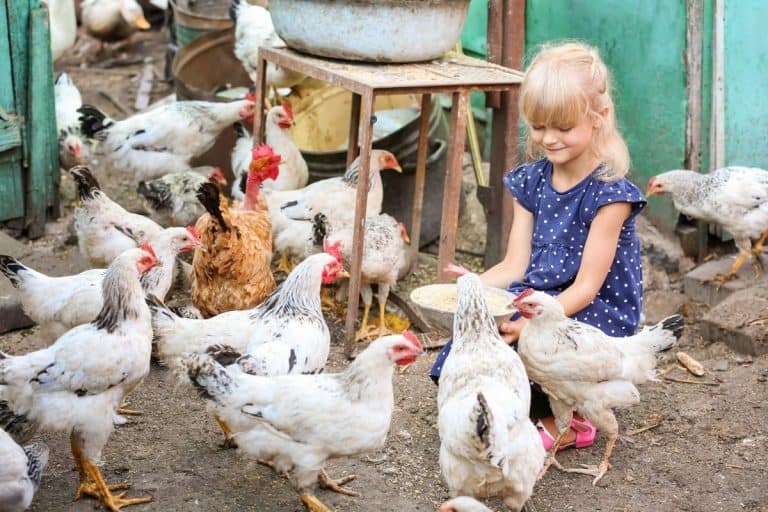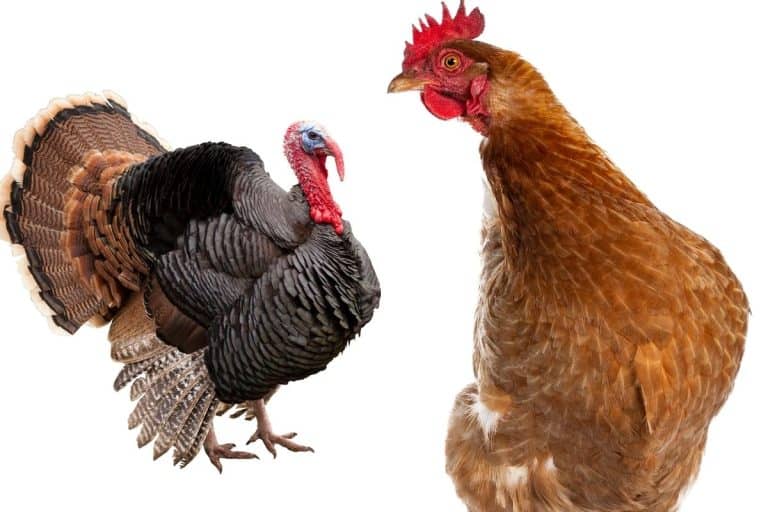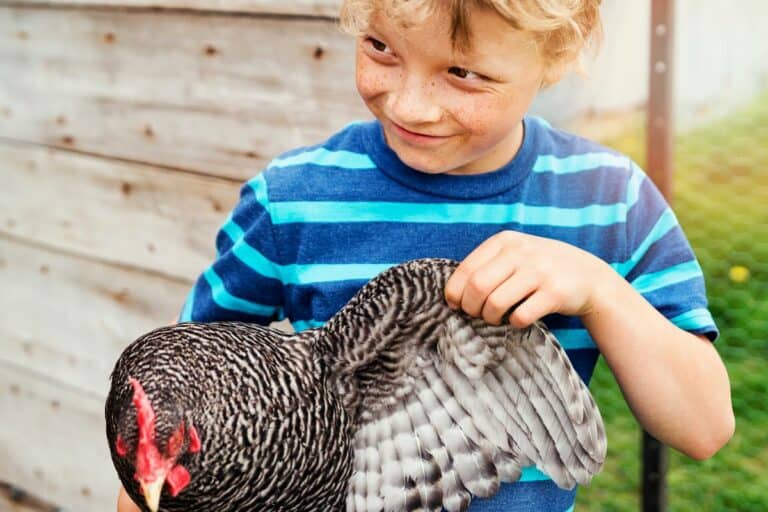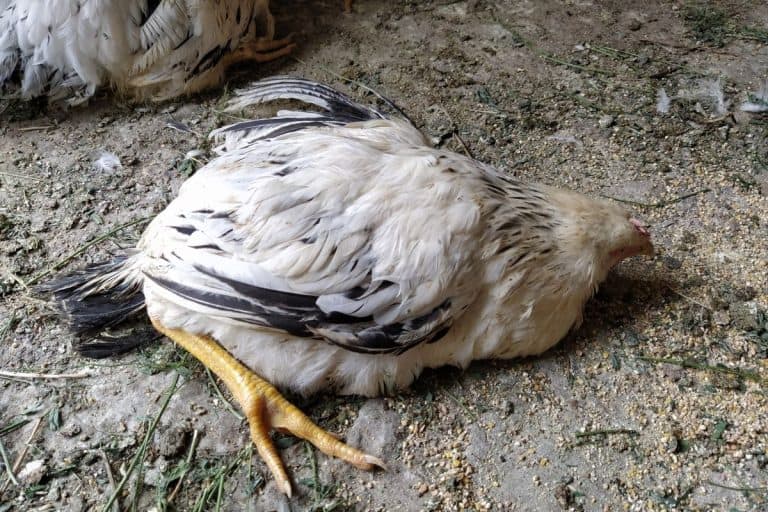Why do Chickens Kill Other Chickens?
Just like we humans have social order, it seems so do chickens. We have bosses, employees, government leaders, supervisors, you get the point. Chickens also have a social hierarchy, which we call a ‘pecking order’.
Chickens kill other chickens because they have a social hierarchy called a ‘pecking order’. The pecking order establishes who is at the top of the hierarchy and who is at the bottom. Chickens will peck each other, sometimes to death, to prove their order on the hierarchy chain.
Much like ‘The Hunger Games’ the chickens’ pecking order characteristics can be gruesome, but they can also be avoided. If like me, you want to avoid seeing your chickens turn into the type of gang the Godfather would approve of, read on to find out how you can prevent this from happening with your chickens.
But before you dive into this topic, did you know I've got a page packed with my go-to chicken stuff? From the best feed to handy tools, it's all there. Don't you want the best for your flock? Check it out right here.
Do Chickens Kill Their Own?
It’s unfortunate, but chickens kill other chickens, mother chickens have even been known to peck at and kill their own chicks. Not all chickens kill their own though, so don’t let this deter you from trusting your chickens completely.
Why do mother chickens kill their own chicks?
Unlike humans, chickens can sense if there is something wrong with their hatchlings. The mother chicken will kill her own chicks before they grow up and risk weakening the flock. You could call this survival instinct.

There is also the case of unknowing first-time mother chickens. Grown hens may not have seen chicks before, even the ones that have laid their eggs and essentially given birth to a chick.
For some chickens, birthing and nurturing baby chicks just isn’t an instilled mothering trait that was developed in them.
Introducing chicks to already established flocks can set chickens on edge and in turn, turn on the chicks.
Why do other chickens kill chicks?
If a baby chick wanders into another nest, it risks being pecked, attacked, and killed. Mother chicks recognize when chicks aren’t their own and try to protect themselves and their baby chicks from the little intruder. Some mothers simply don’t like chicks that don’t belong to them.
Are all hens ruthless when it comes to chicks?
That’s not to say that all chickens treat chicks like this. Some chickens can show signs of empathy and might take strays in as their own and nurture them until they’re old enough to become a part of the flock and join the pecking order.
Scientific research has shown us that chickens have been known to demonstrate social awareness, self-control, the capacity to reason, and some may even have a type of personality. This is demonstrated to us by the simple way in which some hens should not be mothers and the other, more caring and emotionally aware hens, should.
Chickens can demonstrate self-control and self-assessment, and these capacities may indicate self-awareness.
Dr. Marino
Wait, I have some recommendations for you!
Before you go any further, I want you to take a look at some of the recommendations I've handpicked for you. I think these are essential items you should have for your chickens flock. You can check them out and buy them directly from Amazon.
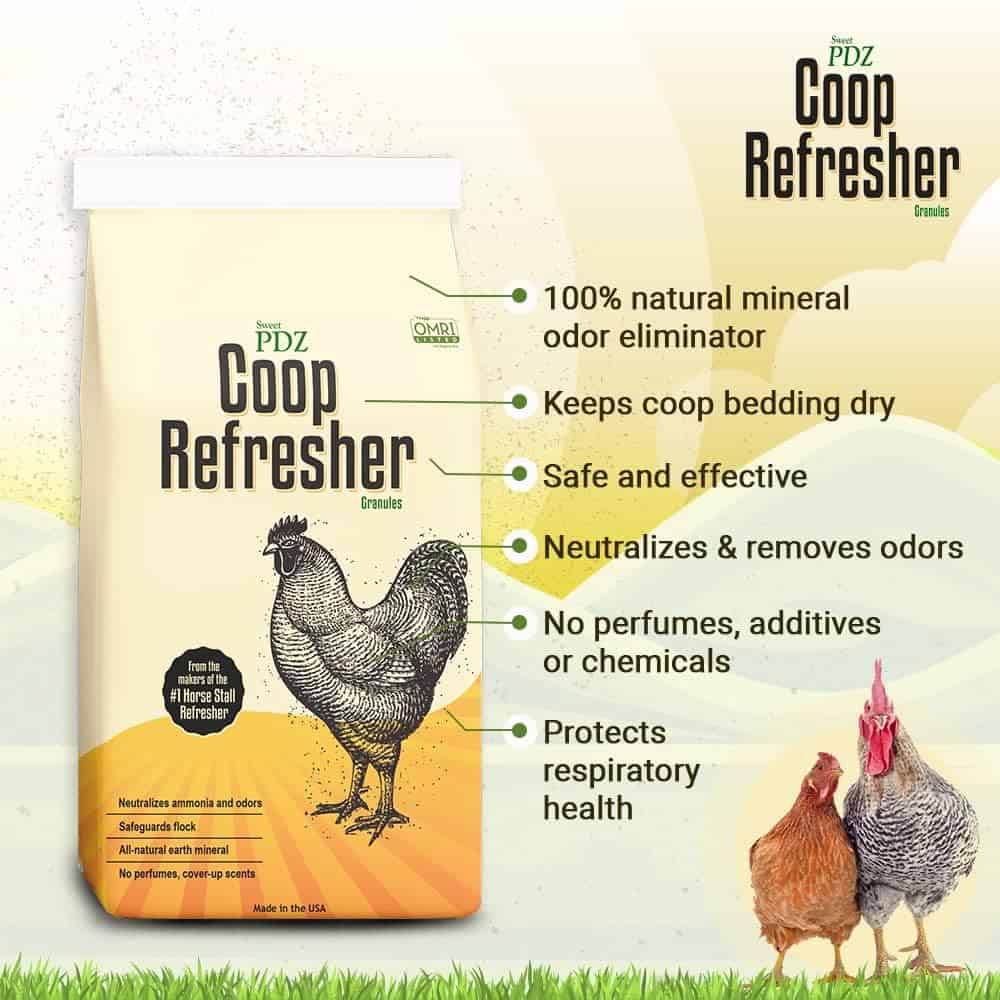 |  | 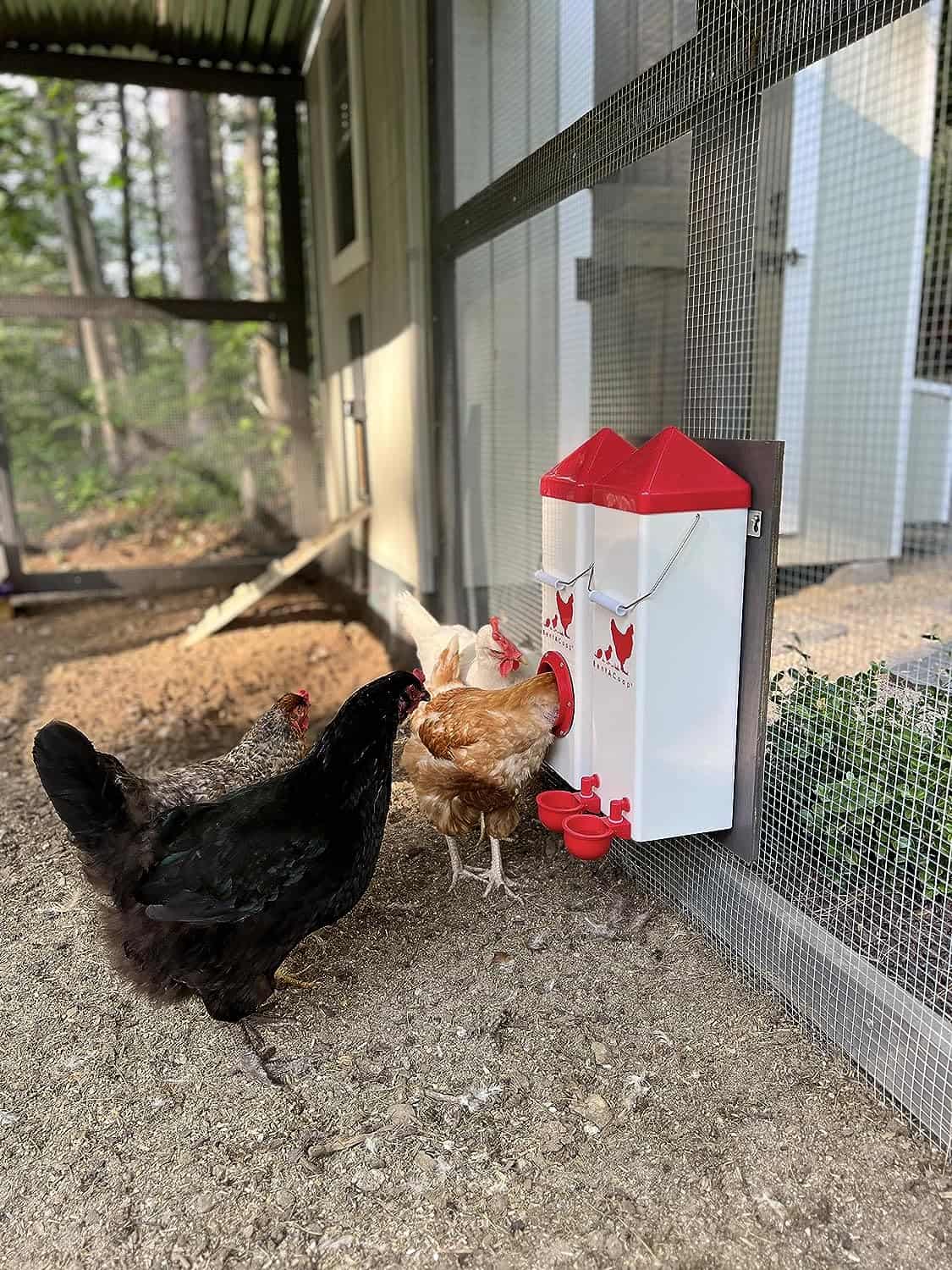 |  |
| Essential accessory for your coop | No more tripping over hoses! | Predator protection made easy | Comfort + style is possible |
Why Do Chickens Kill Other Chickens?
Chickens kill other chickens for numerous reasons. It might be because they’re at the bottom of the pecking order, or because they simply don’t like them. Sad, but true.
Weaklings.
If there is a weak chicken in the group, she is at risk of being left behind and starved. Not just left behind, but literally pushed behind. Chickens sense weakness in each other and will leave a weakling to die if given the chance.
The chickens at the top of the pecking order will not share their food with those at the bottom. The chickens somewhere in the middle will take what they can get and the chickens at the bottom are left with nothing.
Wounded and bleeding.
Wounded chickens are vulnerable chickens. Even if they, in fact, are not ‘weak’, their wounds are prime targets for other chickens to basically bully them.
When chickens see each other bullying, the typical response is to join in the bullying. Like playing ‘follow the leader’.
Although some chickens have a hero type of complex implanted in them and might try to protect the wounded chicken, most of them don’t and only cause further harm.
In multiple cases, if wounded chickens aren’t removed as soon as possible from the aggressive flock, they will be killed. The blood turns the other chickens into vampires, not literally, and they can’t help themselves not to pick at the blood and the wound.
A cure for boredom?
It might be hard to believe but chickens do get bored. You might think they enjoy aimlessly pecking and walking around all day, but the truth is, chickens also need some stimulation.
If chickens are constantly left to their own devices, they can become bored, and a cure for their boredom is to fight each other. Sometimes in aggressive situations, till death.
Roosters vs roosters.
Roosters are aggressive, and they like to take charge of the flock, especially dominating the female chickens. If there are no hens to fight over, roosters can co-exist peacefully.
Add a hen to the flock of roosters, and I can almost guarantee you’ll come back and find multiple dead roosters. The male species of this class Aves needs to show their dominance to impress the hens.
Stress is a killer
A stressed bird is an unhappy bird, and an unhappy bird is a bird at risk of becoming aggressive. Aggressive birds can take out their anger on other birds either by force or unknowingly, resulting in the killing of other chickens.
Stress can be caused by enclosures that are too small, too many roosters fighting one another and becoming growingly aggressive towards hens, and one of the main causes of stress can be when laying eggs.
Hens laying eggs can be protective of their eggs, if other chickens get too close, they can become stressed and aggressively protective. This may result in chickens fighting each other and the accidental destruction of the laid eggs.
How Do I Stop My Chickens from Killing Each Other?
The simplest solution to stop your chickens from killing each other is separation.
Raising, keeping, and caring for chickens can be a time-consuming process if you don’t know what signs to look out for and how to ensure the safety of all your hens, roosters, and chicks.
Here are a few things you can do to prevent your chickens from killing each other:
Try an incubator
When the mother hen lays her eggs, you can put the eggs in an incubator.
An incubator is an enclosed type of structure that provides light, turning, and heating for unhatched, fertilized eggs (it looks like this). Usually, eggs would hatch under their mother’s warmth, but if you feel your hens might be inclined to accidentally kill their chicks, you can use an incubator. The incubator acts as an artificial ‘mother’.
An incubator works as a 21-day process, once the eggs hatch within 21 days, the chicks stay in the incubator until they have fully hatched and dried (usually up to 7 hours). Then, place them in a brooder.
Brooder
Brooders are small, warm, comfortable, havens for little chicks. You can put chicks in here that have hatched from an incubator, or that have hatched with their mother hen but are at risk of being pecked to death for whatever reason.
Some people choose to use a brooder anyway just to be sure the chicks will be safe.
Brooders provide the chicks with plenty of warmth, food, and water, so they can grow up to be big and strong.
Here is a cheap example on Amazon that will do the job if you don’t have one yet.
Give them enough protein.
This might sound strange to you if you don’t know a lot about chickens, but they need protein just as much as we do.
Chickens need protein to grow strong and to avert becoming the ‘weak link’ of the flock. If all chickens are healthy, there’s essentially no need for the flock to have a weakling in the group.
Try grubs, fish, mealworms, and shellfish for a high-protein diet to keep your chickens healthy.
Remove and separate them
If you notice any blood in and around your flock, or an injured bird, remove them from the flock immediately. Blood can set your chickens on vampire mode and result in them attacking and pecking the wounded chicken to death.
Keep a very close watch on the injured chicken and give them close attention and care to try and nurse them back to health. If you can get the chick healthy and strong, you should be able to slowly re-introduce them back to the flock eventually. You’ll still want to keep a very close eye on them.
If you can’t keep your chicken in the house, try a pen separator instead.
Only one rooster.
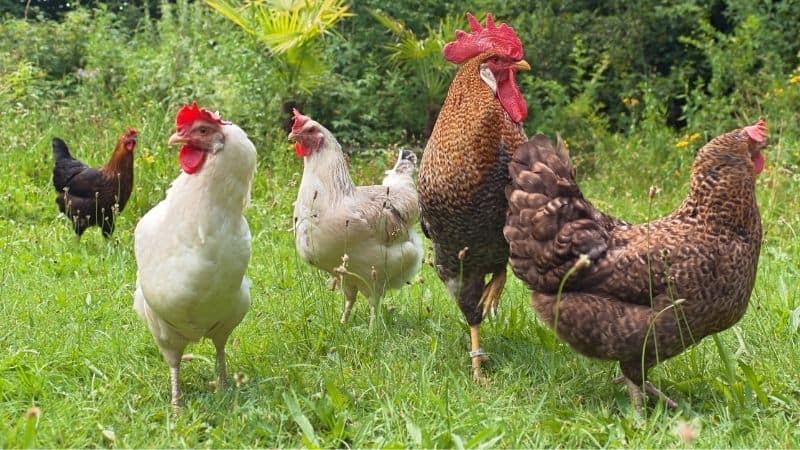
We would suggest only having one rooster per flock. As we mentioned above, roosters will fight each other over hens, and it can get very messy and result in death.
Either keep your flock to roosters only, or one rooster with a flock of hens, to avoid avoidable casualties.
It’s possible to have multiple roosters in a flock, but not recommended in this case.
Can a Rooster Accidentally Kill a Hen?
Roosters have aggressive behaviors and can accidentally kill a hen if their behaviors aren’t controlled or managed.
During the mating process, males can be aggressive without meaning to. You can avoid this by clipping their nails to reduce the damage they may cause during mating. As you’ve read, wounded chickens are vulnerable chickens.
Conclusion
Chickens will kill other chickens to establish the top to bottom of their social hierarchy. Any chickens found to be weak, or wounded, will possibly be starved, or pecked to death. Follow the above necessary precautions and guidelines to deter your chickens from feeling it necessary to adopt a pecking order status and keep all your chickens happy, healthy, and alive.


